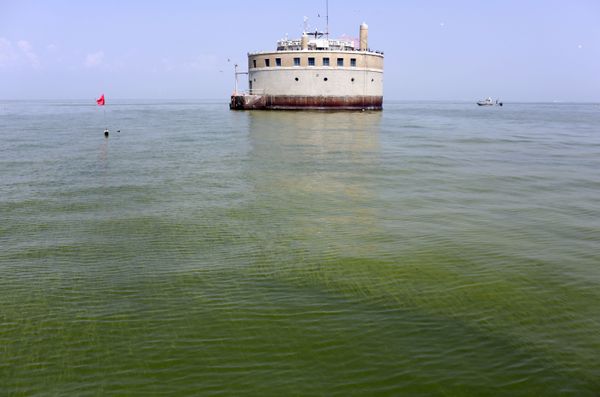This article by Valerie Vande Panne of the Independent Media Institute appeared in EcoWatch on May 16, 2019.
In February, the voters of Toledo, Ohio, passed a ballot initiative that gives Lake Erie and those who rely on the lake’s ecosystem a bill of rights. The idea is to protect and preserve the ecosystem so that the life that depends on it — humans included — can have access to safe, fresh drinking water.
On the surface, it seems pretty logical: Humans need water to survive, and if an ecosystem that is relied on for water—in this case, Lake Erie — is polluted (in this case, with algae), then the Lake Erie Bill of Rights (or LEBOR) would ensure the rights of humans would come before the polluters (in this case, big agriculture).
Except, that’s not what’s happening.
Rather, in a perhaps unsurprising move, the state of Ohio has at once both acknowledged rights of nature to exist, and taken them away, with a line written in, of all things, the state budget: “Nature or any ecosystem does not have standing to participate in or bring an action in any court of common pleas.”
“It’s not surprising that the Ohio legislature has the shameful distinction of being the first in the country to specifically name ecosystem rights — trying to quash them rather than taking the lead in recognizing them,” the Community Environmental Legal Defense Fund (CELDF), which was involved in the initiative and is experienced with rights of nature laws and actions, said in a press release. The Lake Erie Bill of Rights has received international acclaim.
Last week, a judge ruled Toledoans for Safe Water, the local group behind the Lake Erie Bill of Rights, cannot defend the voter-passed initiative in a lawsuit brought by a factory farm against the city over the initiative. Yet, the state of Ohio is being permitted to support the farm in the lawsuit against the city.
Big agriculture, of course, is the primary source of nutrient pollution that has caused algae blooms that have denied half a million people access to clean, safe drinking water, sometimes for days at a time.
Markie Miller, Toledo resident and concerned citizen with Toledoans for Safe Water, said the new barriers to implementing LEBOR shows the citizens are on to something. “Obviously we’re doing something right, because we’re scaring the Farm Bureau.”
To read the rest of this article at its original source please click HERE.

